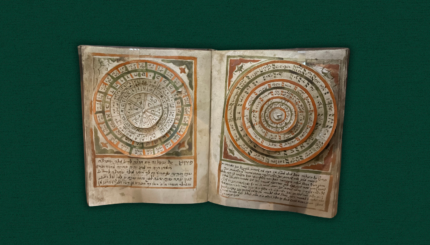Teenagers Sasha and Malia Obama couldn’t keep a straight face during the annual Turkey Pardon Ceremony.
Thank God for their commentary in body language!
How could anyone keep a straight face during this grotesque theater of the absurd? Two turkeys, Mac and Cheese, named sardonically for vegetarian foods, were publicly pardoned. This took place just after 45 million un-named turkeys were slaughtered for the American celebration of Thanksgiving.
Maybe the pardoning ritual is an uncomfortable joke. Maybe it is an admission of guilt. Maybe it is an awkward attempt at an atonement ritual. Logically, we know that two spared lives cannot erase 45 million deaths. But maybe the ritual of pardon has some power.
Not as much power, though, as the ritual of a thanksgiving offering of animal life.
In Nepal, this week, many celebrated the festival of Gadhimai. In gratitude to this goddess, hundreds, perhaps thousands, of buffalo were butchered. Many American animal activists criticized the foreign festival; some drew parallels with American Thanksgiving.
Jewish parallels can be drawn as well. Some Jewish writers call Sukkot the Jewish festival of thanksgiving. During Sukkot, the Talmud says, 70 animals were offered on the altar. Lest readers be outraged by such decadence, the Talmud hastens to explain its meaning. Seventy animals hint at the 70 nations of the world. Delicately put, a thanksgiving offering touches a universal chord in human nature. Less delicately, a massive sacrifice of animals brings all people together.
Maybe this explanation seems obvious to you, but to me it begs for psychological and sociological interpretation.
Many Jewish scholars describe eating meat as a “compromise.” The Torah explains this through a teaching story: The original human beings were told to eat grasses and seeds. Only ten generations later, however, people and animals were killing one another. God wiped the earth clean with a flood and restarted it with some new rules. People, who could not avoid killing, could now satisfy their impulses by eating animals.
Perhaps partaking of meat at a festival affirms our species-being. Yes, we are aggressive, the ritual teaches, but we do not need to kill one another. Together we affirm a pact: we kill only other species, and only to eat. At American Thanksgiving, we affirm this pact with family and friends; in the Talmud’s vision of the Temple, strangers from around the world affirm it together. The Temple thus becomes a centre of peace.
Of course, some contemporary psychologists would object. Some may view these extravagant meat-based festivals as bonding rituals. But research shows that people who harm animals are more likely to harm people. The manifest lessons of peaceful festivals contain subtle, subliminal messages of aggression: Us versus them. Desensitization.
When you see through the manifest content to the mixed messages, it’s hard to keep a straight face.
Maybe the U.S.’s first daughters were simply uncomfortable watching their father tell bad jokes on TV. But to suggest that would be to underestimate teens. Real teenagers see inconsistencies, ask edgy questions, and work the answers out in deep private conversations.
That’s why I have tried to see this season through fresh teenage eyes. Thank you, Sasha and Malia, for helping me take another look at festive animal offerings and ask, “Why?”
Photo Credit: Dan Smith, Wikimedia Commons
Talmud
Pronounced: TALL-mud, Origin: Hebrew, the set of teachings and commentaries on the Torah that form the basis for Jewish law. Comprised of the Mishnah and the Gemara, it contains the opinions of thousands of rabbis from different periods in Jewish history.
Torah
Pronunced: TORE-uh, Origin: Hebrew, the Five Books of Moses.



